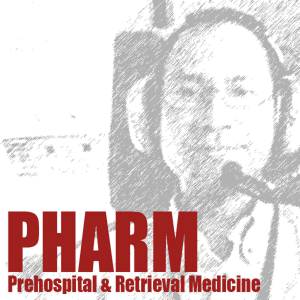Nebraska protocol to sedate SCA patients who attain awareness from CPR https://t.co/QJ8P7jGVPS T pic.twitter.com/TGXwYBY4hN
— EMS1 (@EMS1) March 12, 2016
Prehospital and Retrieval Medicine – THE PHARM dedicated to the memory of Dr John Hinds
In memory of Dr John Hinds

L gues Ketamine can be beneficial to both the patient and the clinician in that besides achieving sedation requirement it improves the blood pressure for the patient, and of course the clinician can work on the patient without the hussle of restraining the patient.
Well… I am a great fan of ketamine.. but not for this…
There is a HUGE gab between BP and flow… And the last thing you want to expose a newly restarted heart to is excessice afterload (ie KETAMINE made BP…. )… also, you dont want to give that heart a boost of tachycardia related to ketamine…
ROSC BP: Keep it low, and let if flow !!!!
P. Bredmose,
I recently experienced a patient in V-fib arrest who was awake and combative during the resuscitation. I understand the fear of negatively impacting the heart, I think you have a valid concern and I actually pondered the same thoughts.
However, I’m curious what agent you might believe would be more appropriate for a patient in cardiac arrest who is literally flailing around. We know that these patients likely need a cath lab, but they also need high quality resuscitation and some sedation might be necessary to allow this. So, just curious what might be better than ketamine?